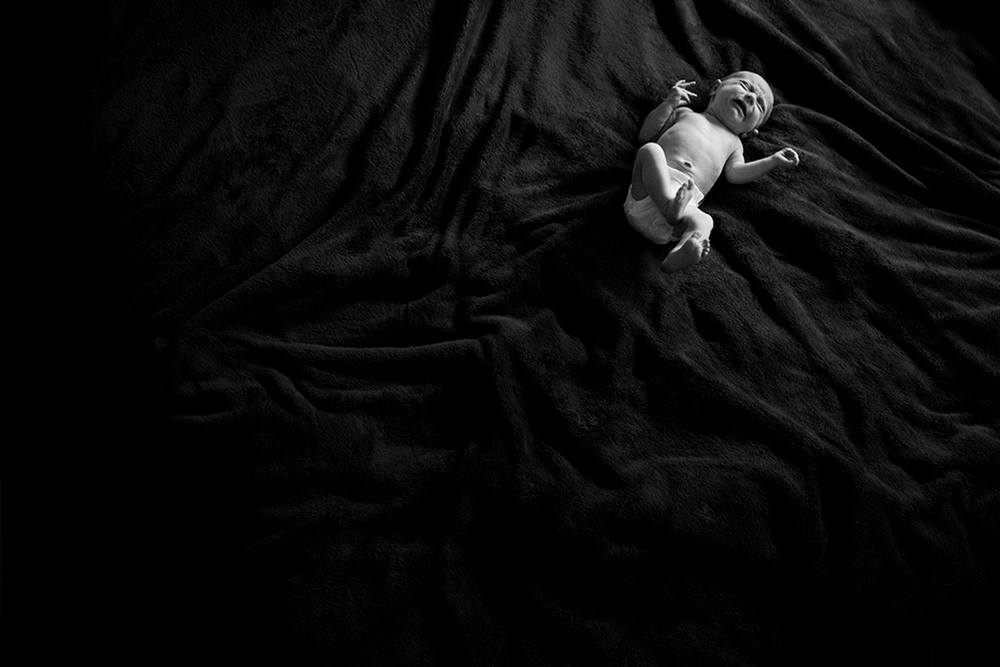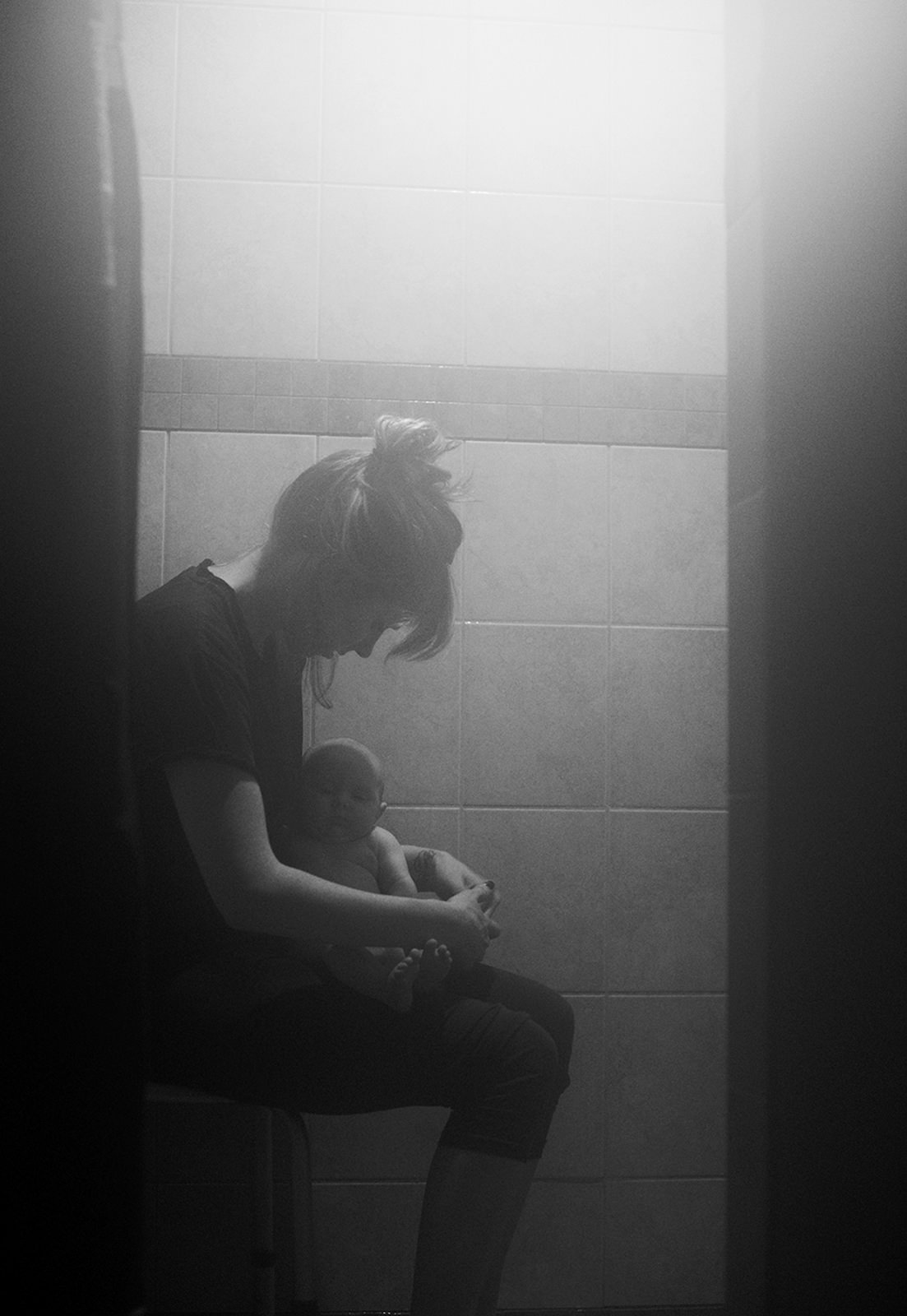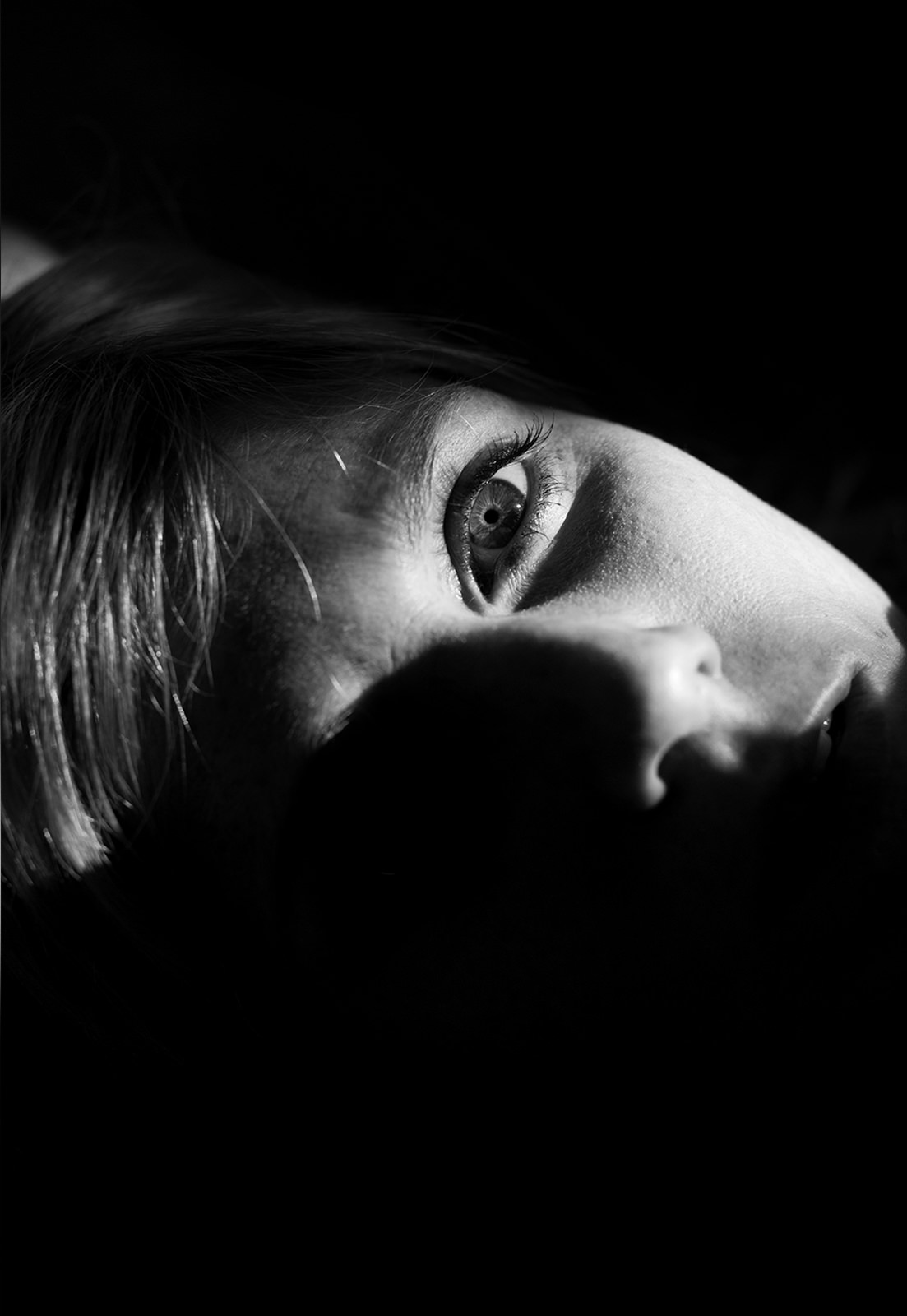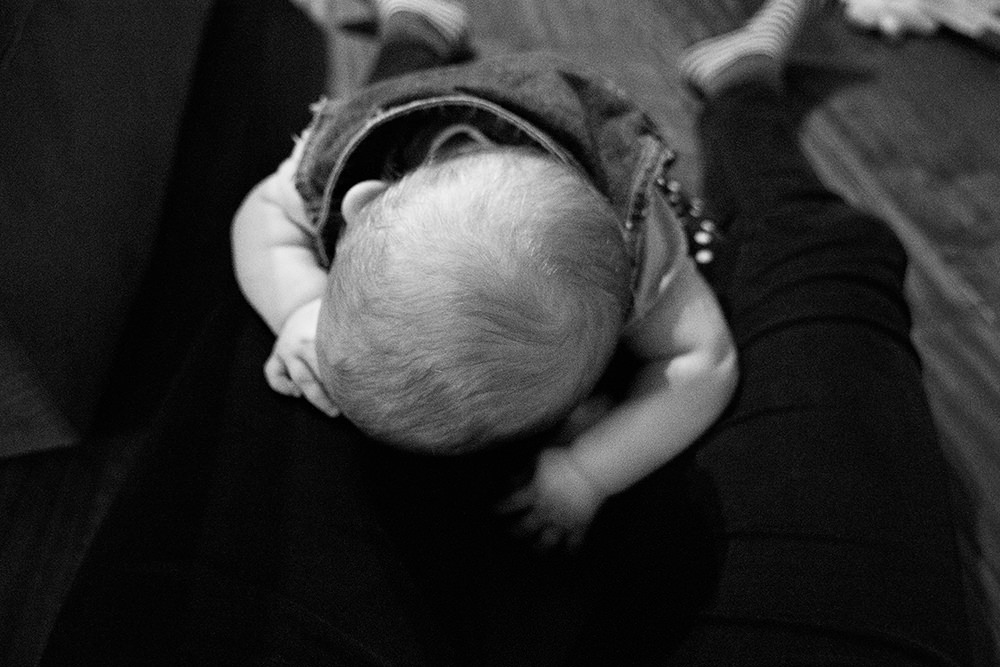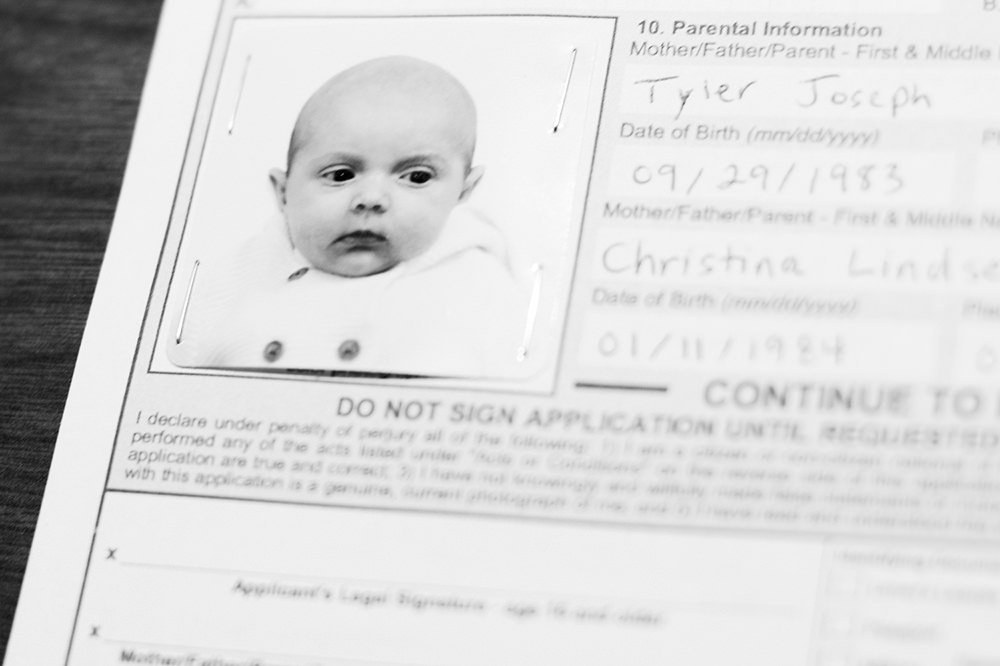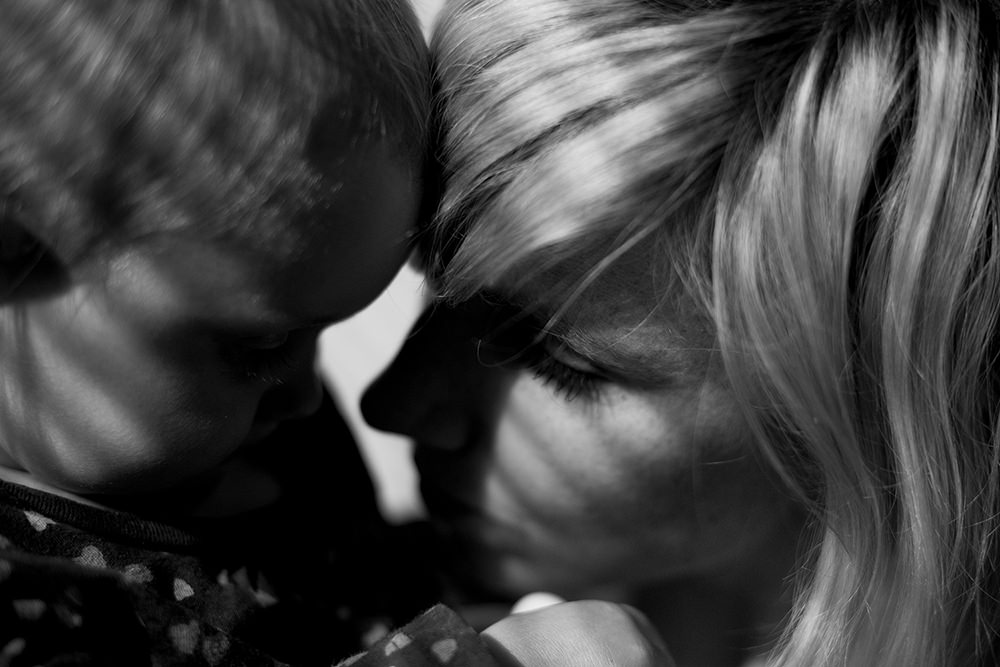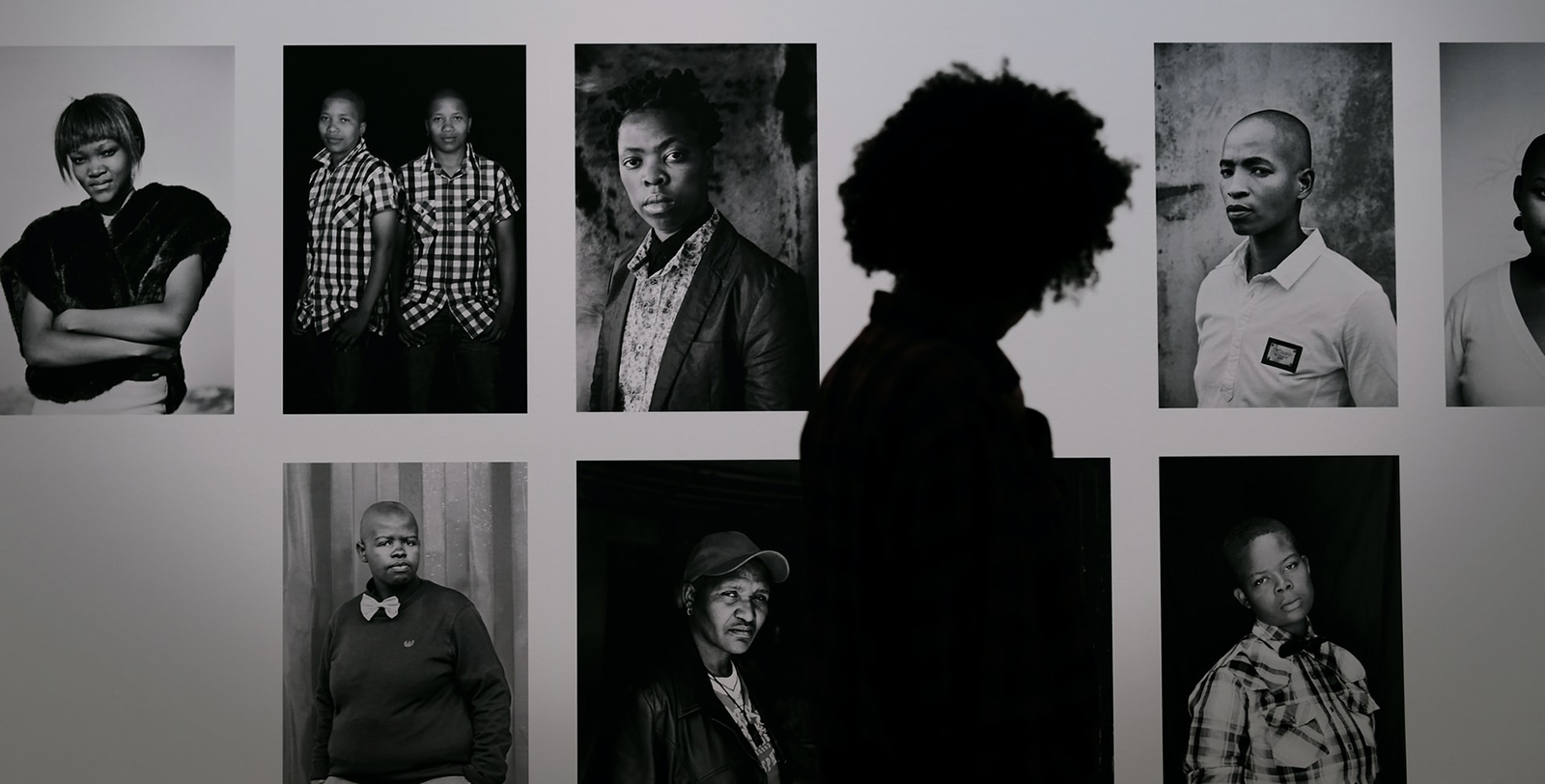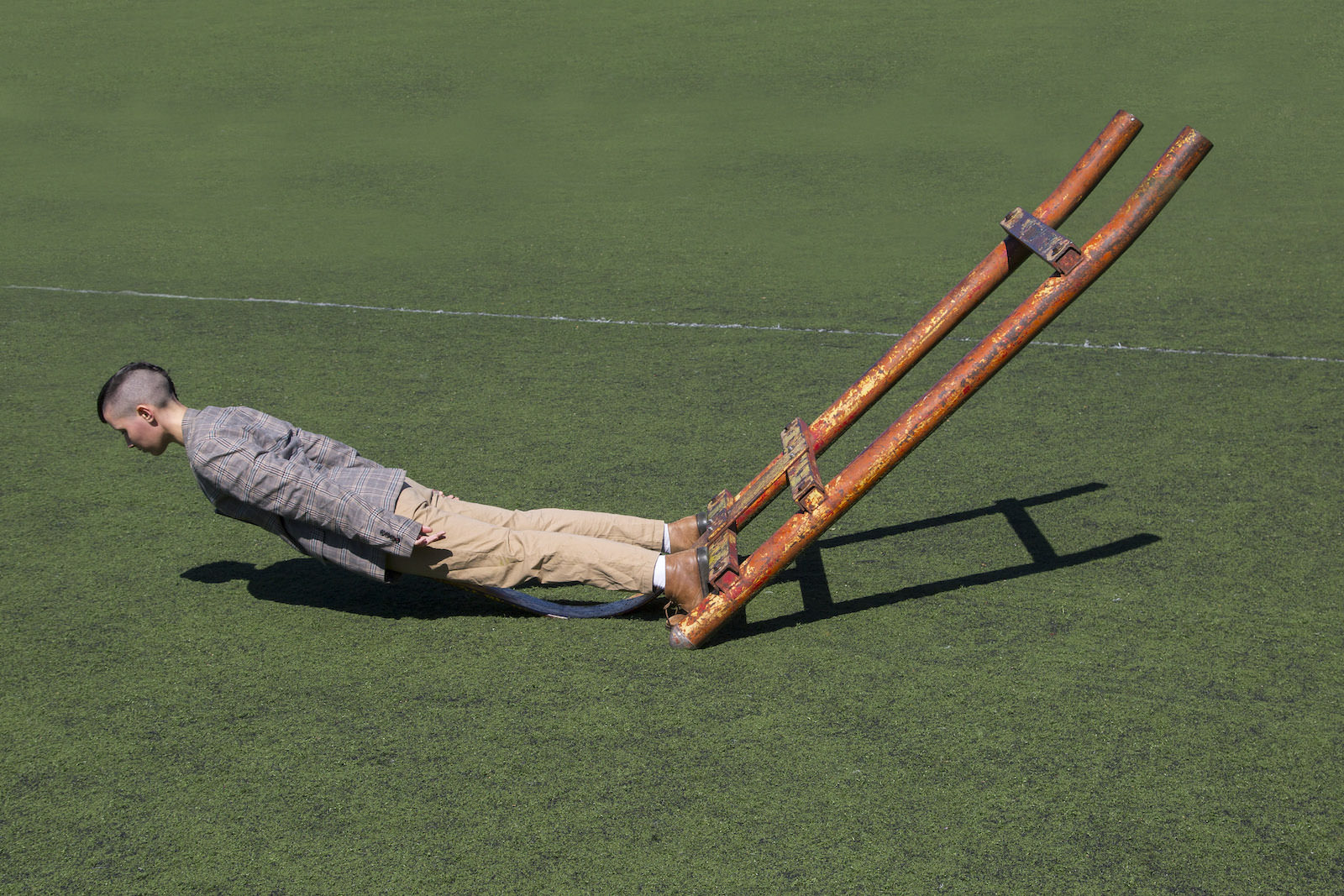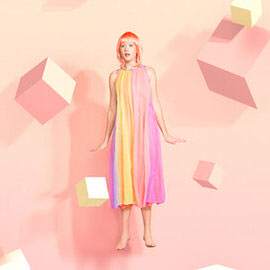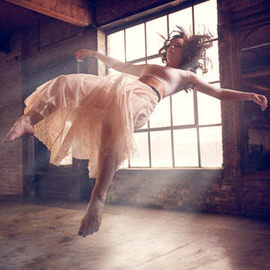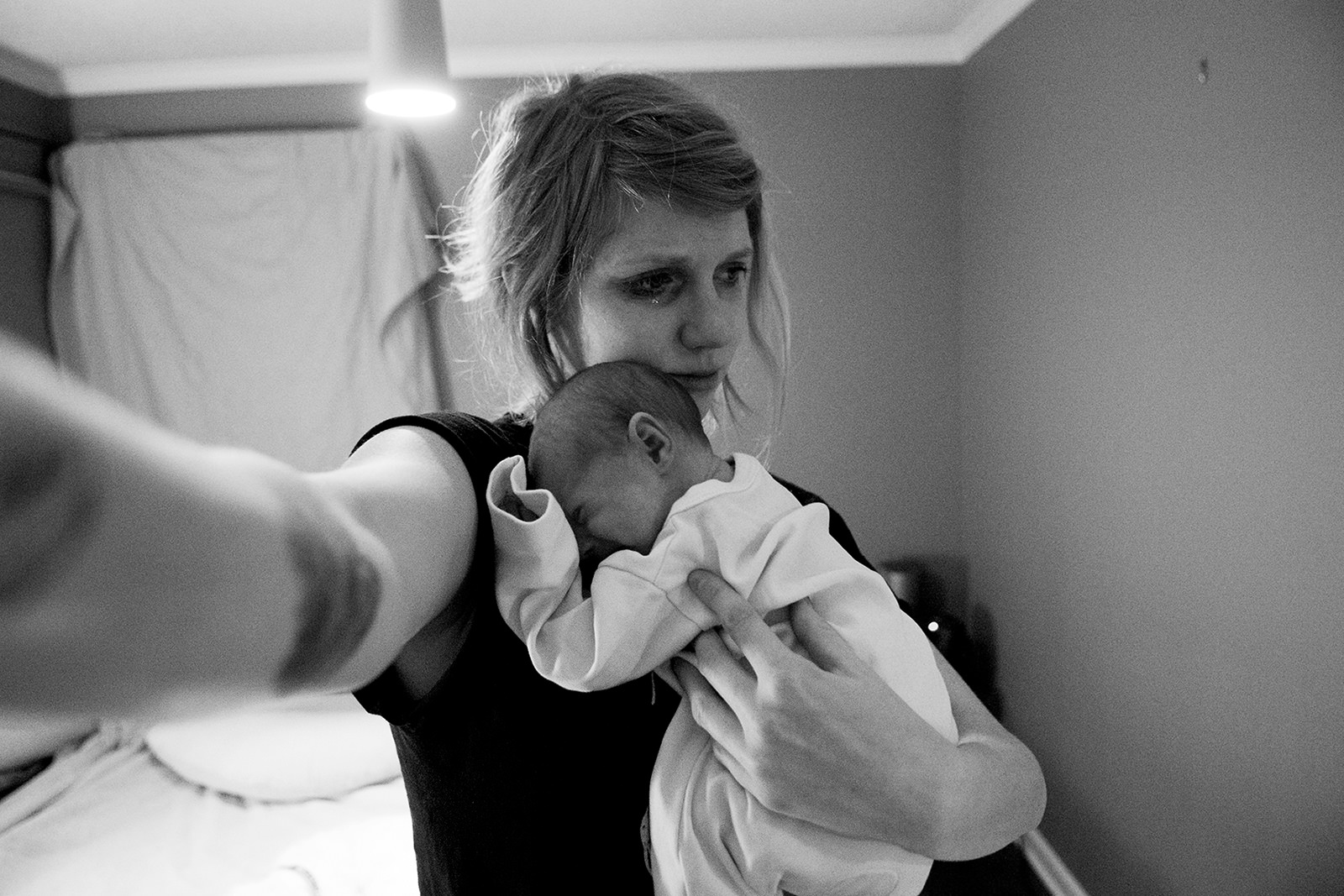
The Reality of Motherhood: How Christina Riley Documented Her First-Born’s Infancy with an Outsider’s Eye
After Christina Riley had her first child, Autumn, in 2013, she had to photograph the experience. It was like she didn’t have a choice: she knew that everything in her life, from eating and sleeping habits to her emotional state, would shift dramatically, and she wanted to document the intimacy of that experience as best as she could.
So that’s what she did. Her latest photo series, Born, shot in gritty black-and-white detail, encapsulates every moment, failure, celebration and tear of her first year as a mother.
“It’s the reality of parenting,” she says. “I don’t like just showing the happy moments – I feel like that helps people feel left out and bad about themselves. I’d rather share genuine experiences, because people can relate to it. I want to document the good times and the bad.”
Born is filled with seemingly candid shots, simultaneously distant and intimate, transforming motherhood into a collection of abstract shapes, tight portraits and lost gazes. Riley wanted to lean into the realism of every moment to alleviate the tension (and pretension) around having a child.
“I think that’s really common with parents – with your first child, you go from having a ton of freedom to having a baby boss controlling your life,” she says. “It was a drastic change of lifestyle.”
Breaking Down the Process
Riley knew how to photograph herself candidly – she’d created a collection with a similar aesthetic in 2011, with her photo series Back to Me, which documented a lengthy manic-depressive episode. For Born, she used many of the same techniques.
“It was almost like something was telling me to photograph it,” she says. “In the pictures, I’m not acting. It’s genuine. I’m actually shocked at how I’m able to do it; it feels like someone else is taking the pictures.”
She took thousands of photos, she estimates – a collection she whittled down to 40 for her series, which she’s turning into a book. To choose which made the cut, Riley printed out dozens of shots and tacked them onto foam-cork boards in her office, shifting them around for years before settling on the right sequence.
As Autumn grew up, she started giving her opinion on photos of herself that she couldn’t possibly have fully comprehended. “She actually thinks they’re funny,” Riley says.
She’s only printing 150 copies of her book so far, which she plans on selling on her website.
How She Photographed Herself from an Outsider’s Perspective
Riley prefers to avoid Photoshop; as she says, “I want them to look as organic as possible.” But she still shoots digital, using a Nikon D800 for Born while alternating between her 50mm and 17-24mm lenses. She usually left the prime lens on as her default.
To ensure she was prepared for any moment, she left her tripod standing all around her house, often with a camera sitting on top. That way, “if I think it’s an important moment, the camera is right there,” she explains.
Riley doesn’t own a shutter-release remote, instead preferring to set an auto-timer to take at least nine frames. She reviewed the results immediately, and if she felt she hasn’t done justice to the moment, she’d snap another nine.
Somehow, she was able to remain in her authentic emotional state the whole time – whether she was crying, despondent or in awe of her child. It’s a trick of mental distancing even she can’t fully explain.
“I have this ability to see myself from an outside perspective,” Riley says. “It’s such a natural thing for me. Not a lot of thinking is involved in it.”
The Second Time Around
This past May, Riley gave birth to her second child, River. But she doesn’t plan on photographing everything again, partly because she knows what to expect. “This time around, I’ve done it all before, so I’m relaxed about things,” she says. But that doesn’t dampen the emotional effect of Born for her: “I still relate to it, but it does feel like a different version of me.”
Anyone who’s raised a child should be able to relate to it, too. Riley’s candid work is a refreshing break from the social selfies, Photoshopped portraits and Anne Geddes wannabes who make child-rearing seem like a simplistically whimsical journey. It’s not. But as all parents know, the struggle is almost always worthwhile.


